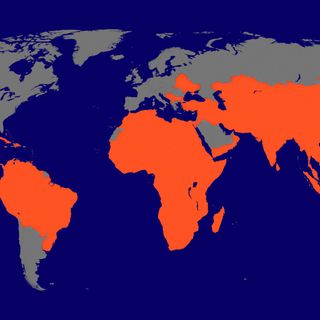
Chemo Not Required for Many Breast Cancer Cases
The largest clinical study to date will radically alter treatment protocol in the West.

This week, the largest ever clinical study of breast cancer treatment made major international headlines, because there is now definitive data showing that many early stage breast cancer patients can safely forgo chemotherapy.
The new study, published in the New England Journal of Medicine, uses a genetic test on tumors that can identify those patients with early stages of the most common type of breast cancer who can safely forgo the process of chemotherapy.
“With results of this groundbreaking study, we now can safely avoid chemotherapy in about 70 percent of patients who are diagnosed with the most common form of breast cancer,” says oncologist Dr. Kathy Albain, MD, at Loyola Medicine. “For countless women and their doctors, the days of uncertainty are over.”
A genetic test, which has been available for a few years, involves taking a biopsy sample of a tumor to gauge how active it is; doctors are then able to grade the tumor for a ‘recurrence score’ that ranges from 0 to 100. According to traditional treatment protocols, those with higher scores (above 25) have greater chances of recurrence in distant organs, and hence receive chemotherapy to reduce the odds of future relapse. Those with lower scores (below 10) do not need to receive chemotherapy. However, those with intermediate scores of 11-25 left doctors doubtful of what would be the best course of action. This study sought to answer that question.
The researchers used over 10,000 female participants who were diagnosed with the most common type of breast cancer that had not spread to the lymph nodes. Researchers examined the outcome of the 69% of patients who had intermediate scores on the 21-gene test.
Patients were then randomly given either chemotherapy followed by hormone therapy, or only hormone therapy alone. The results between the chemotherapy and non-chemotherapy groups showed minimal differences.
For those whose gene test scores ranged between 11 to 25, and especially those women whose age ranged from 50 to 75, there was no significant difference between patients who underwent chemotherapy and those who didn’t. For women under 50, the outcomes were similar when test scores were 15 and lower. For younger women who had test scores between 16 to 25, the outcomes were slightly better for those in the chemotherapy group, indicating that perhaps age may play a factor in the treatment recommendations.
“The study should have a huge impact on doctors and patients,” concludes Dr. Albain. “Its findings will greatly expand the number of patients who can forgo chemotherapy without compromising their outcomes. We are de-escalating toxic therapy.”
While the tests are groundbreaking for women outside India, there are many barriers for Indian breast cancer patients. Because there is still so much stigma around the disease, most women in India do not get checked for breast cancer regularly, which means that if and when it’s detected, it is usually at a later stage, when it is too late to avoid chemotherapy, explains oncologist Dr. Sumeet Shah of The Pink Initiative. What’s more, the genetic test costs about 2 lakh Rupees, while a standard treatment protocol for breast cancer in India usually costs about 1.25 lakh Rupees. All of this means that for Indian women, the best thing they can still do to avoid breast cancer fatalities is to get regular check ups to detect breast cancer at an early stage.
Related


Vaccines Work Better In Some Parts of the World Than Others
